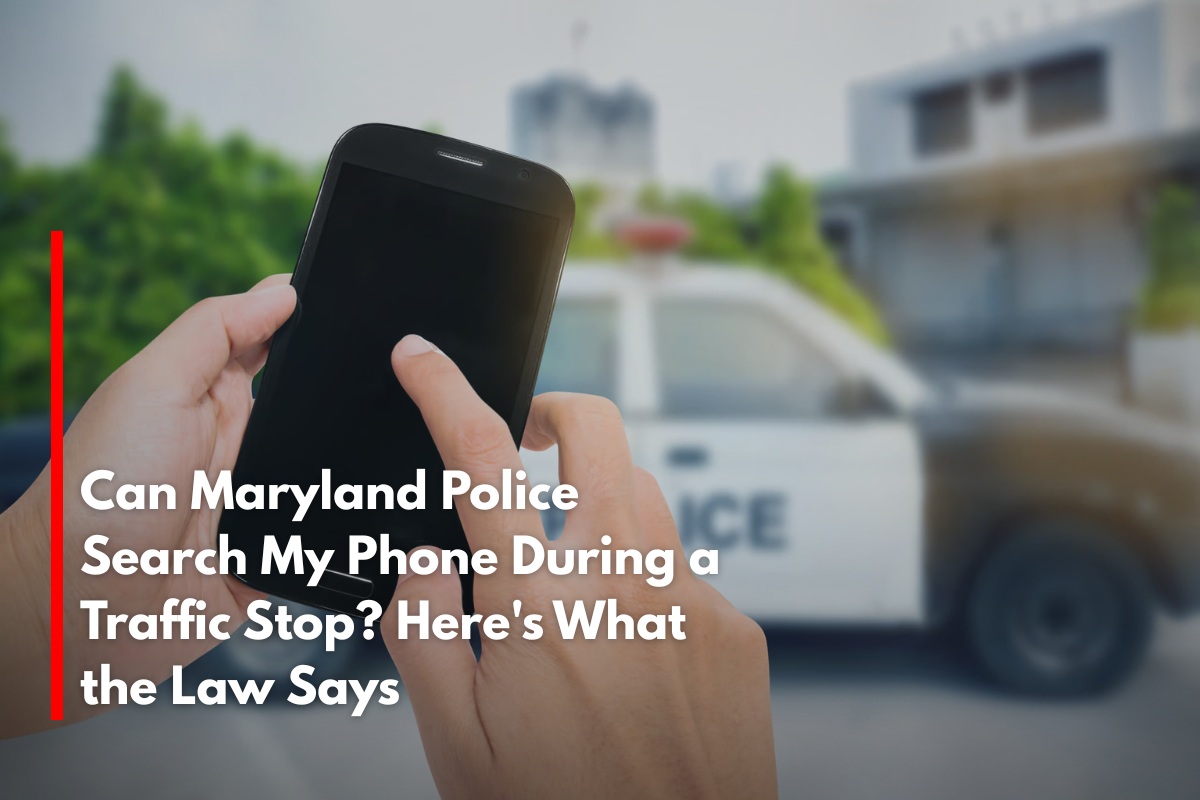When pulled over during a traffic stop in Maryland, many drivers wonder about their rights, especially regarding whether police can search their cell phones. The answer hinges on state and federal laws protecting privacy and the specific circumstances of the stop.
Legal Protections for Cell Phone Searches
The Fourth Amendment to the U.S. Constitution guards against unreasonable searches and seizures, generally requiring police to obtain a warrant before searching the contents of a cell phone. This legal protection extends to Maryland drivers during traffic stops, meaning police cannot simply search a phone without a warrant or valid exception.
The Requirement of a Warrant
According to Maryland law and recent court rulings, law enforcement officers need probable cause and a specific warrant to access information on a cell phone. The warrant must clearly state the crime under investigation and narrowly define what data can be searched (texts, photos, call logs, etc.) to avoid unconstitutional “fishing expeditions”.
When May Police Conduct a Phone Search Without a Warrant?
While warrants are typically required, there are exceptions including:
Consent: If a driver voluntarily consents to the search, police may access the phone without a warrant. However, drivers have the right to refuse consent.
Incident to Arrest: In some cases, if the driver is arrested, police may search the phone without a warrant, though this is legally contested and limited in scope.
Exigent Circumstances: Emergency situations where evidence may be destroyed could justify immediate searches, but these are rare and scrutinized by courts.
Maryland Case Law and Recent Developments
The Maryland Supreme Court is currently reviewing cases that address cellphone use and searches during traffic stops. Courts have emphasized that merely holding or manipulating a phone while driving is not enough to justify a search or traffic stop unless accompanied by other suspicious factors suggesting criminal activity.
In one recent appellate decision, the court ruled that seeing a driver “manipulate” a cellphone without clear evidence they were texting did not justify a stop or search, affirming protections against unwarranted searches.
What Should Drivers Know and Do?
Drivers have the right to refuse consent to a phone search during traffic stops. Politely but firmly stating “I do not consent to a search” can help protect privacy rights.
If police search a phone without a warrant or valid exception, evidence may be excluded in court through a motion to suppress.
Being aware of one’s legal rights and requesting to speak with an attorney if arrested is critical.
In Maryland, police cannot generally search a phone during a traffic stop without a warrant or specific legal justification. Drivers should know that their phones enjoy Fourth Amendment protections, and consent to searches is voluntary. Legal developments continue to clarify these rights, underscoring the importance of staying informed to protect personal privacy during encounters with law enforcement.
Sources
(https://www.dmtlaw.com/blog/can-police-search-your-phone-during-a-traffic-stop/)
(https://www.govtech.com/public-safety/can-police-search-your-phone-during-a-traffic-stop)
(https://www.justcriminallaw.com/blog/2025/july/what-to-do-if-police-want-to-search-your-phone/)
(https://www.careylawoffice.com/2022/09/26/maryland-court-rules-authorities-must-limit-cellphone-searches/)
(https://thedailyrecord.com/2025/05/28/md-supreme-court-cellphone-stop-appeals/)











